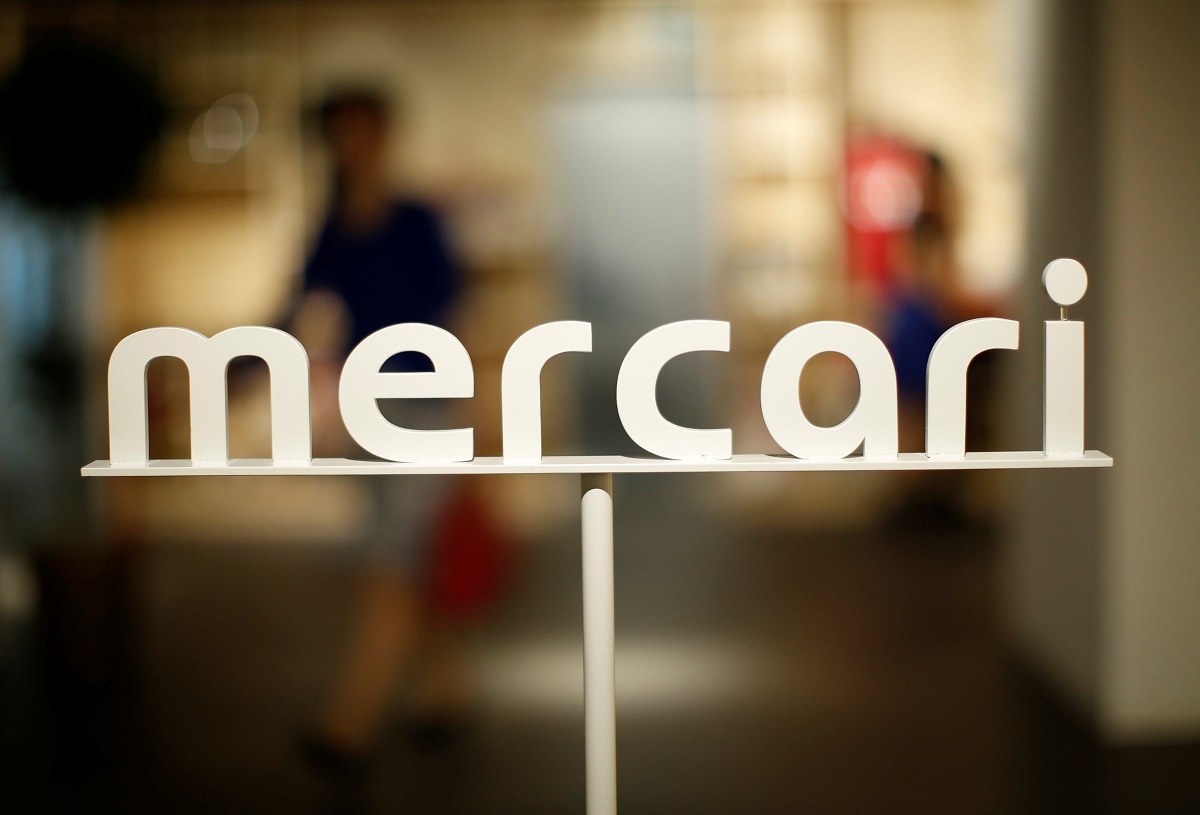
The logo of Mercari is displayed at the company’s Tokyo headquarters in June 2018.
18:00 JST, June 16, 2024
TOKYO (Jiji Press) — A growing number of local governments in Japan are moving to sell some reusable oversized waste collected from households, including furniture, on popular flea market app Mercari.
The moves are aimed at reducing carbon dioxide emissions from waste incineration.
There are also cases in which such waste is offered to people for free or recycled as materials.
The city of Nishinomiya in Hyogo Prefecture, western Japan, began putting items up for sale on Mercari in October 2022 in order to reduce oversized waste, for which demand for collection from households has been growing.
Nishinomiya has so far offered sofas, clothing boxes and other items, and has sold 57 items for a total of ¥82,800 . The initiative is aimed at raising citizens’ awareness over reusing goods, with a city official saying, “We want people to realize that (things) can be sold and try it out themselves.”
Gamagori in Aichi Prefecture, central Japan, became the first municipality in the country to begin selling oversized waste on Mercari in May 2022.
The city conducted a pilot project in October-December last year in which it outsourced the entire process of selling oversized waste, from sorting waste to shipping, to a senior workforce center.
A total of 202 items were offered for sale in the pilot project, up significantly from 18 in the same period of the preceding year.
The city is touting the scheme, which creates employment opportunities for the elderly, as the “Gamagori Model.”
In neighboring Shizuoka Prefecture, the city of Fukuroi, the town of Mori and an administrative union covering the two municipalities have partnered with regional information website operator Jimoty Inc. to display reusable items brought to regional waste facilities, such as furniture, on the website and offer them for free to those who want them.
A total of 490 items were given to people through fiscal 2023, leading to a roughly 2.9-ton reduction in waste.
In May 2023, Tokyo’s Shinagawa Ward began utilizing wooden oversized waste, which had previously been incinerated, as a material resource. After parts such as metals and glass are removed, such waste is processed into wood chips and used in construction materials.
In fiscal 2023, the ward recycled 1,052 tons of wood waste, a quarter of all oversized waste. It has since begun using plastic clothing boxes as a resource as well.
“We want to recycle what we can,” a ward official said.
Top Articles in Society
-

Producer Behind Pop Group XG Arrested for Cocaine Possession
-

Man Infected with Measles Reportedly Dined at Restaurant in Tokyo Station
-

Man Infected with Measles May Have Come in Contact with Many People in Tokyo, Went to Store, Restaurant Around When Symptoms Emerged
-

Woman with Measles Visited Hospital in Tokyo Multiple Times Before Being Diagnosed with Disease
-

Australian Woman Dies After Mishap on Ski Lift in Nagano Prefecture
JN ACCESS RANKING
-

Producer Behind Pop Group XG Arrested for Cocaine Possession
-

Japan PM Takaichi’s Cabinet Resigns en Masse
-

Man Infected with Measles Reportedly Dined at Restaurant in Tokyo Station
-

Israeli Ambassador to Japan Speaks about Japan’s Role in the Reconstruction of Gaza
-

Videos Plagiarized, Reposted with False Subtitles Claiming ‘Ryukyu Belongs to China’; Anti-China False Information Also Posted in Japan





















